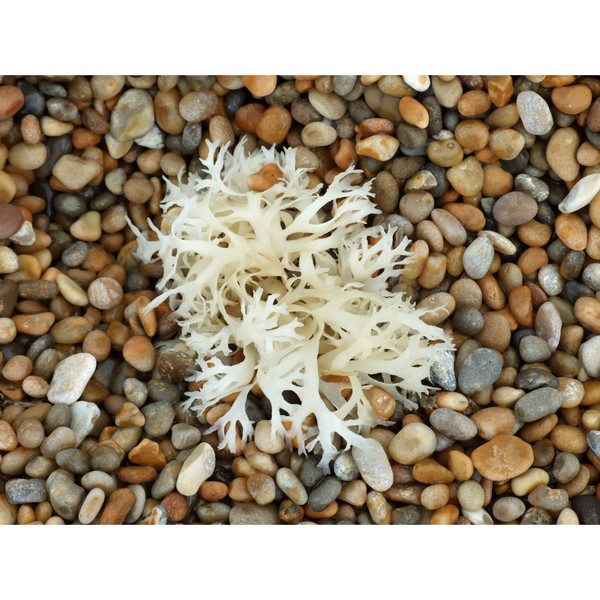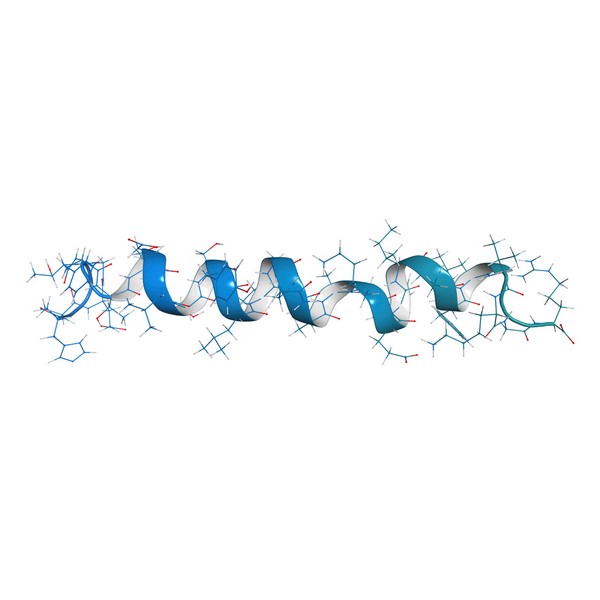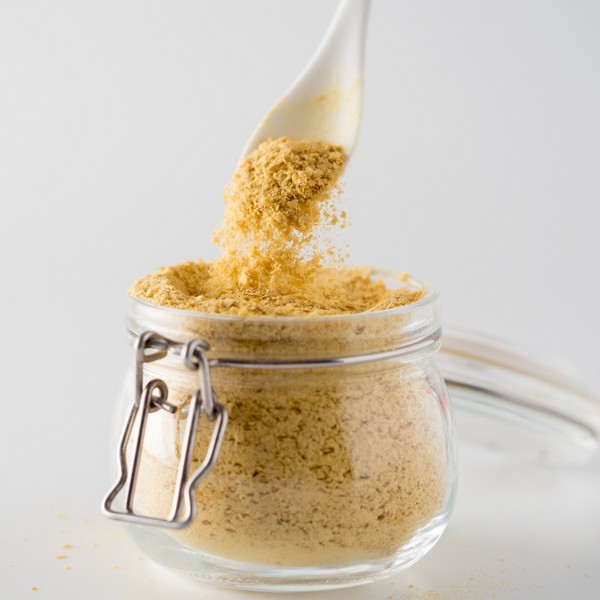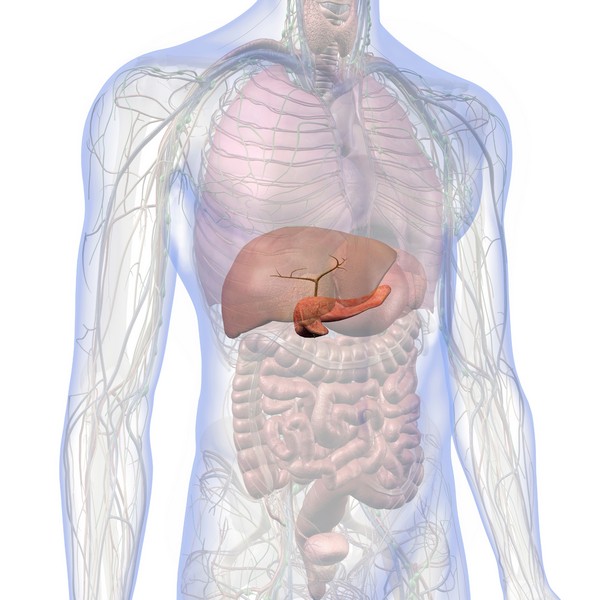This potent, natural source of energy has gained considerable attention in recent years for its impressive array of benefits. MCT oil is a versatile addition to your daily routine with scientifically proven benefits that can help you optimize your health and achieve your goals.
Short Summary
- MCTs are a type of fat with shorter chain lengths that provide various health benefits.
- MCT oil offers enhanced weight loss, improved brain function, strengthened gut health, increased energy levels, and potential cardiovascular benefits.
- Individuals looking for improved well-being should consider incorporating MCT oil into their diet under professional guidance.
Table of Contents
Understanding Medium Chain Triglycerides (MCTs)

MCTs are a unique type of fat that is easily absorbed and rapidly converted into energy by our bodies, providing a range of health benefits.
MCTs are different from other fats, such as saturated fats, because they have a shorter chain length, making them more easily absorbed by our bodies than longer-chain fatty acids, such as those found in olive oil.
These healthy fats, also known as medium-chain fatty acids, can be found in sources like coconut oil and palm oil.
MCT oil, a concentrated source of MCTs, has gained popularity for its incredible health benefits, particularly in the realms of weight loss, brain function, and gut health.
With the increasing demand for concentrated MCT oils, more people are discovering the advantages of incorporating them into their daily routines.
Sources of MCTs
MCTs can be found in various foods, such as coconut oil, palm oil, and dairy products like butter, whole milk, cheese, and yogurt. Coconut oil, in particular, contains healthy fats, apart from MCTs.
However, if you’re looking for the most concentrated source of MCTs, MCT oil is the way to go.
This oil is the result of a process that extracts MCTs from virgin coconut oil and palm oil and provides a higher concentration of these beneficial fats, making it easier for our bodies to absorb and utilize them efficiently.
Types of MCTs
MCTs come in various forms of saturated fatty acids, with different chain lengths and health properties. The most common and beneficial types of fatty acids extracted are caprylic acid (C8) and capric acid (C10), while lauric acid (C12) is also considered an MCT but has a slightly longer chain length.
The shorter the chain of fatty acids, the more rapidly the body can convert them into a form of energy known as ketones.
Ketones are an efficient source of energy for both the brain and body, making MCTs a valuable addition to your diet for overall health and wellness.
The Incredible Health Benefits of MCT Oil
MCT oil boasts a myriad of health benefits that can significantly improve your quality of life. From enhanced body weight and loss to improved brain function, strengthened gut health, increased energy, normal blood sugar levels, and cardiovascular health, MCT oil is a powerhouse of goodness for your body and mind.
Enhanced Weight Loss
MCT oil can be a powerful ally in your weight loss journey. Studies have shown that MCTs can increase satiety, make you feel fuller for longer, and reduce calorie intake.
This feeling of fullness can help curb cravings and prevent overeating, ultimately supporting your healthy weight-management and fat-loss efforts.
Additionally, MCTs are known to boost metabolism, which can lead to increased fat burning and a reduction in body fat.
A review of 13 randomized controlled trials suggested that incorporating MCTs into a diet could potentially result in modest weight and fat loss, as well as a reduction in body size.
Further research is needed to evaluate the longer-term efficacy of this dietary approach. However, it’s essential to note that some of these studies were of questionable quality, and results could be impacted by industry funding.
To minimize potential adverse effects, it is recommended to begin with a low dose, such as one teaspoon, and gradually increase up to one to two tablespoons daily.
Improved Brain Function
MCT oil can have a significant impact on brain function, providing an efficient source of energy in the form of ketones. Ketones are an alternative fuel source for the brain, especially for those following a low carbohydrate or ketogenic diet.
Since MCTs are quickly absorbed and converted into ketones, they can provide immediate energy to the brain, enhancing cognitive function and mental clarity.
MCT oil may be particularly beneficial for individuals with cognitive disorders such as epilepsy, Alzheimer’s disease, and autism. The rapid production of ketones from MCT oil may help improve brain function and alleviate symptoms in these individuals.
However, it’s crucial to consult with a healthcare professional before incorporating MCT oil into your diet if you have any of these conditions.
Strengthened Gut Health

MCT oil can also play a vital role in maintaining and improving gut health. It has been shown to control bacterial and yeast overgrowth and reduce inflammation in the gut, which can help alleviate various digestive issues and promote overall gut health.
MCT oil may be particularly helpful for those with digestive disorders such as leaky gut syndrome, Crohn’s disease, and gallbladder infections.
In addition, the intake of fatty acids, including MCTs, has been shown to improve the absorption of certain vitamins and nutrients, such as beta-carotene, vitamin E, calcium, magnesium, phosphorus, and lutein.
This improved nutrient absorption can further contribute to a healthier gut and overall well-being.
Increased Energy Levels
MCT oil is a fantastic source of energy for both the body and the brain. Its ability to be rapidly absorbed and metabolized into ketones for energy makes it an ideal supplement for those looking to boost their energy levels.
Consuming MCT oil prior to physical activity can augment exercise performance by rapidly providing muscles with energy, minimizing lactic acid formation, and enhancing endurance.
MCT oil can also be beneficial during intermittent fasting, as it can help extend the fasting period, promote weight loss, provide energy, regulate blood sugar levels, and improve insulin sensitivity.
It May Improve Athletic Endurance
The use of MCTs can help increase endurance in sports as the metabolism of fat in arteries and muscles increases in comparison, the doctor added.
As opposed to the quick expenditure of energy derived from simple sugars, energy from fat is described as a long-lasting slow burn.
Researchers found that athletes taking 6 grams (1.6 teaspoons) of MCT oil a day after exercising significantly reduced their perceived exertion in moderate exercise.

Cardiovascular Health
MCT oil may potentially support cardiovascular health by enhancing blood lipid profiles and facilitating weight loss. Studies have demonstrated that MCTs may reduce the risk of cardiovascular disease and mortality, likely due to their potential to reduce the risk of obesity.
However, it’s essential to note that more research is needed to establish the full extent of MCT oil’s impact on cardiovascular health.
It’s important to consult a medical professional if you are at risk for heart disease before commencing an MCT regimen or a high-fat diet, as high consumption of MCTs may affect cardiovascular disease risk factors.
MCT Oil vs. Coconut Oil

While MCT oil and coconut oil both contain medium-chain triglycerides, there are some key differences between the two. MCT oil is more concentrated, containing primarily capric and caprylic acid, while coconut oil is composed of a combination of MCTs and other fatty acids, providing additional health benefits.
The concentrated MCT oil itself is the result of a process that extracts MCTs from coconut and palm oil, providing a higher concentration of these beneficial fats.
Coconut oil, on the other hand, contains about 54% MCTs along with other healthy fats like lauric acid, which has been linked to improved brain function and heart health.
The choice between MCT oil and regular coconut oil ultimately depends on your specific health goals and preferences.
If you’re looking for a more concentrated source of MCTs, MCT oil is the best option, while coconut oil offers a wider range of health benefits.
How to Incorporate MCT Oil into Your Diet

Incorporating MCT oil into your daily routine is easy and versatile. You can add it to beverages, cook with it, or even start taking MCT oil daily as a supplement. Let’s explore some of the best ways to include more MCT oil in your diet to reap its full benefits.
MCT Oil in Beverages
One of the easiest ways to include MCT oil in your diet is by adding it to beverages like coffee, tea, or smoothies. MCT oil can be mixed into hot drinks like coffee or tea for an instant energy boost and improved mental clarity.
You can also blend MCT oil into your favorite smoothie recipes for a creamy and delicious energy boost.
Popular recipes include Keto Green Lemon Smoothie, Keto Chocolate Shake with Coconut Milk, and Basic Bulletproof Coffee.
In addition to providing a quick energy boost, incorporating MCT oil into your beverages can also help you lose weight, as it has been shown to increase satiety and reduce calorie intake.
Experiment with different MCT oil-infused drinks to find the perfect combination of taste and nutrition for your needs.
Cooking with MCT Oil
MCT oil can also be used for cooking and sautéing dishes at or below 320°F, making it a healthy and versatile addition to your kitchen. You can use MCT oil as a substitute for other cooking oils, such as olive oil, in recipes.
Keep in mind that MCT oil has a low smoke point, so it’s best to use it for low-heat cooking or in recipes that don’t require heat at all.
MCT oil can also be added to salad dressings for improved nutrient absorption and added health benefits. By incorporating MCT oil into your cooking routine, you’ll not only enjoy its incredible health benefits but also add a unique, delicious flavor to your dishes.
MCT Oil Supplements

If you prefer to take MCT oil as a supplement, you have several options. MCT oil supplements are available in liquid form, which can be easily mixed into beverages or taken straight by the spoonful, or in capsule form, for a more convenient and portable option. For some individuals, the powder form is the preferred option.
The suggested daily dosage of liquid MCT oil also varies depending on your individual goals, ranging from 5 to 70 grams daily.
No matter how you choose to incorporate MCT oil into your diet, you’re sure to enjoy the myriad of health benefits it offers.
Potential Side Effects and Precautions
As with any dietary supplement, it’s important to be aware of potential side effects and precautions when using MCT oil. Potential side effects of using too much MCT oil include digestive issues like loose stools, diarrhea, gas, bloating, abdominal pain, and cramping. To minimize these risks, it’s recommended to start with a low dose, such as one teaspoon, and gradually increase up to one to two tablespoons daily. MCT oil can help manage digestive issues and other side effects. Consuming it with meals is a great way to ensure optimal digestion.
It’s essential to consult a medical professional if you are at risk for heart disease before commencing an MCT regimen or a high-fat diet, as high consumption of MCTs may affect heart disease risk factors. Always be cautious and seek expert advice when incorporating MCT oil into your diet for optimal results and minimal side effects.
Who Should Consider Using MCT Oil?
MCT oil may be beneficial for individuals looking to lose weight, improve brain function, or support gut health. However, it’s important to consult with a healthcare professional before incorporating MCT oil into your diet, especially if you are pregnant or breastfeeding, have diabetes, liver disease, or other health issues.
By seeking expert advice and starting with a low dose, you can safely and effectively incorporate MCT oil into your daily routine to optimize your health and achieve your goals.
Summary
In conclusion, MCT oil is a powerful and versatile addition to your daily routine, offering a plethora of health benefits ranging from weight loss to improved brain function and gut health. By understanding the sources, types, and benefits of MCT oil, and learning how to incorporate it into your diet, you can harness its incredible potential to optimize your health and well-being. Remember to consult with a healthcare professional before incorporating MCT oil into your diet and start with a low dose to minimize potential side effects. With MCT oil, a healthier and more vibrant life is within your reach!
Frequently Asked Questions
What are the benefits of MCT chain triglycerides?
MCT oil has been shown to aid in weight loss, decrease abdominal obesity, lower metabolic syndrome and inflammation, and provide an alternative energy source.
Additionally, its shorter chain length allows it to travel more quickly from the gut to the liver without requiring bile for breakdown.
Who should not use MCT?
People who are breastfeeding, have high triglycerides or heart disease, and have diabetes or liver disease should consult a medical professional about MCT oil.
Does MCT oil reduce belly fat?
Evidence suggests that MCT oil combined with a healthy diet and lifestyle may support weight loss and reduce belly fat.
What are the main sources of MCTs?
MCTs can be found in coconut oil, palm oil, and various dairy products like grass-fed butter, whole milk, cheese, and yogurt.
How does MCT oil support weight loss?
MCT oil can support weight loss by increasing satiety, reducing calorie intake, and boosting metabolism.
It has been shown to reduce hunger and cravings, leading to a decrease in calorie intake. Additionally, MCT oil can increase the body’s metabolic rate, helping to burn more calories.
Will taking MCT oil while intermittent fasting break my fast?
MCT oil won’t break you. Like sugar and fat, it can inhibit the production of glucan — a hormone responsible for stopping any fasting benefits from occurring. MCT oil contains fat which is not associated with high insulin sensitivity. Although MCTs can impact our metabolism much more than water or coffee they have little impact. when consumed MCT oil increases insulin in the blood and causes fewer calories than regular fast foods and fats. This mild increase in insulin is mainly offset by the numerous benefits of MCT oils.
Research Han, J. R., Deng, B., Sun, J., Chen, C. G., Corkey, B. E., Kirkland, J. L., Ma, J., & Guo, W. (2007). Effects of dietary medium-chain triglyceride on weight loss and insulin sensitivity in a group of moderately overweight free-living type 2 diabetic Chinese subjects. Metabolism, 56(7), 985-991. https://doi.org/10.1016/j.metabol.2007.03.005 Nimbkar, S., Leena, M.M., Moses, J.A. and Anandharamakrishnan, C., 2022. Medium chain triglycerides (MCT): State‐of‐the‐art on chemistry, synthesis, health benefits and applications in food industry. Comprehensive Reviews in Food Science and Food Safety, 21(2), pp.843-867. https://sci-hub.se/10.1111/1541-4337.12926 Jadhav, H.B. and Annapure, U.S., 2022. Triglycerides of medium-chain fatty acids: A concise review. Journal of Food Science and Technology, pp.1-10. https://sci-hub.se/10.1007/s13197-022-05499-w Lee, Y.Y., Tang, T.K., Chan, E.S., Phuah, E.T., Lai, O.M., Tan, C.P., Wang, Y., Ab Karim, N.A., Mat Dian, N.H. and Tan, J.S., 2022. Medium chain triglyceride and medium-and long chain triglyceride: metabolism, production, health impacts and its applications–a review. Critical reviews in food science and nutrition, 62(15), pp.4169-4185. https://doi.org/10.1080/10408398.2021.1873729 Baker, M.A., Cho, B.S., Anez-Bustillos, L., Dao, D.T., Pan, A., O'Loughlin, A.A., Lans, Z.M., Mitchell, P.D., Nosé, V., Gura, K.M. and Puder, M., 2019. Fish oil–based injectable lipid emulsions containing medium-chain triglycerides or added α-tocopherol offer anti-inflammatory benefits in a murine model of parenteral nutrition–induced liver injury. The American journal of clinical nutrition, 109(4), pp.1038-1050. https://sci-hub.se/10.1093/ajcn/nqy370 Augustin K, Khabbush A, Williams S, Eaton S, Orford M, Cross JH, Heales SJR, Walker MC, Williams RSB. Mechanisms of action for the medium-chain triglyceride ketogenic diet in neurological and metabolic disorders. Lancet Neurol. 2018 Jan;17(1):84-93. doi: 10.1016/S1474-4422(17)30408-8. Epub 2017 Dec 16. PMID: 29263011. https://pubmed.ncbi.nlm.nih.gov/29263011/ Ota, M., Matsuo, J., Ishida, I., Takano, H., Yokoi, Y., Hori, H., Yoshida, S., Ashida, K., Nakamura, K., Takahashi, T. and Kunugi, H., 2019. Effects of a medium-chain triglyceride-based ketogenic formula on cognitive function in patients with mild-to-moderate Alzheimer’s disease. Neuroscience letters, 690, pp.232-236. https://pubmed.ncbi.nlm.nih.gov/30367958/ Han, F. Y., Conboy-Schmidt, L., Rybachuk, G., Volk, H. A., Zanghi, B., Pan, Y., & Borges, K. (2021). Dietary medium chain triglycerides for management of epilepsy: New data from human, dog, and rodent studies. Epilepsia, 62(8), 1790-1806. https://doi.org/10.1111/epi.16972 Vandenberghe, C., St-Pierre, V., Fortier, M., Castellano, C.A., Cuenoud, B. and Cunnane, S.C., 2020. Medium chain triglycerides modulate the ketogenic effect of a metabolic switch. Frontiers in nutrition, 7, p.3. https://doi.org/10.3389/fnut.2020.00003 Thomas, D.D., Stockman, M.C., Yu, L., Meshulam, T., McCarthy, A.C., Ionson, A., Burritt, N., Deeney, J., Cabral, H., Corkey, B. and Istfan, N., 2019. Effects of medium chain triglycerides supplementation on insulin sensitivity and beta cell function: a feasibility study. PLoS One, 14(12), p.e0226200. https://journals.plos.org/plosone/article?id=10.1371/journal.pone.0226200 Avgerinos, K.I., Egan, J.M., Mattson, M.P. and Kapogiannis, D., 2020. Medium Chain Triglycerides induce mild ketosis and may improve cognition in Alzheimer’s disease. A systematic review and meta-analysis of human studies. Ageing research reviews, 58, p.101001. https://www.ncbi.nlm.nih.gov/pmc/articles/PMC7050425/ d C Harvey, C.J., Schofield, G.M., Williden, M. and McQuillan, J.A., 2018. The effect of medium chain triglycerides on time to nutritional ketosis and symptoms of keto-induction in healthy adults: a randomised controlled clinical trial. Journal of Nutrition and Metabolism, 2018. https://www.hindawi.com/journals/jnme/2018/2630565/ Ibrahim, K.S. and El-Sayed, E.M., 2021. Dietary conjugated linoleic acid and medium-chain triglycerides for obesity management. Journal of Biosciences, 46, pp.1-14. https://www.ias.ac.in/article/fulltext/jbsc/046/0012 Neudorf, H., Jackson, G. and Little, J.P., 2022. Examining the effect of consuming C8 medium-chain triglyceride oil for 14 days on markers of NLRP3 activation in healthy humans. Journal of Nutrition and Metabolism, 2022. https://www.hindawi.com/journals/jnme/2022/7672759/ Myette-Côté, É., St-Pierre, V., Beaulieu, S., Castellano, C.A., Fortier, M., Plourde, M., Bocti, C., Fulop, T. and Cunnane, S.C., 2021. The effect of a 6-month ketogenic medium-chain triglyceride supplement on plasma cardiometabolic and inflammatory markers in mild cognitive impairment. Prostaglandins, Leukotrienes and Essential Fatty Acids, 169, p.102236. https://www.sciencedirect.com/science/article/pii/S0952327820301940 Yoshimura, Y., Shimazu, S., Shiraishi, A., Nagano, F., Tominaga, S., Hamada, T., Kudo, M., Yamasaki, Y., Noda, S. and Bise, T., 2018. Ghrelin activation by ingestion of medium-chain triglycerides in healthy adults: a pilot trial. J Aging Res Clin Pract, 7, pp.42-6. http://dx.doi.org/10.14283/jarcp.2018.9 Kono H, Fujii H, Asakawa M, Yamamoto M, Matsuda M, Maki A, Matsumoto Y. Protective effects of medium-chain triglycerides on the liver and gut in rats administered endotoxin. Ann Surg. 2003 Feb;237(2):246-55.PMID: 12560783; PMCID: PMC1522134. doi: 10.1097/01.SLA.0000048450.44868.B1. Currenti W, Godos J, Alanazi AM, Grosso G, Cincione RI, La Vignera S, Buscemi S, Galvano F. Dietary Fats and Cardio-Metabolic Outcomes in a Cohort of Italian Adults. Nutrients. 2022 Oct 14;14(20):4294. doi: 10.3390/nu14204294.
Grains & Legumes Secretly Harming Your Health? Find Out Now!
Key Takeaways: – Grains and legumes contain antinutrients like lectins and phytic acid, which can interfere with nutrient absorption. – These foods may trigger digestive…
8 Key Signs of Nutrient Deficiency
Key Takeaways Magnesium: A multitasker that aids in over 300 biochemical reactions in the body. Copper: Supports neurological function, cardiovascular and immune system health, iron…
L-Glutamine and Gut Health: Benefits and Side Effects
Key Takeaways L-Glutamine is essential for gut health. Benefits include improved digestion and reduced inflammation. Potential side effects are rare but can occur in high…
Conjugated Linoleic Acid (CLA): Benefits & Sources
Key Takeaways CLA is a type of fatty acid found primarily in animal products like beef and dairy. Known for potential benefits such as weight…
Benefits of Sea Moss Explained
Key Takeaways Rich in Nutrients: Sea moss is packed with essential vitamins, minerals, and antioxidants, supporting overall health and wellness. Supports Immune Function: Its high…
Carnivore Diet: Benefits, Risks, Food List & More
Key Takeaways The carnivore diet is a keto diet that only allows for animal-based foods, and has potential health benefits. Tips for success include hydrating,…
Bee Pollen: Nature’s Secret Superfood
Key Takeaways Bee pollen is packed with essential nutrients and offers numerous health benefits. It supports immune function, boosts energy, and promotes overall well-being. Adding…
5-HTP: Natural Ways to Boost Serotonin and Improve Mood
Key Takeaways: 5-HTP is a natural compound that helps boost serotonin levels in the brain. It can support mood regulation, sleep improvement, and stress reduction….
How Collagen Supports Healthy Skin, Joints, and More
Allulose: The Best Sugar Alternative
Key Takeaways Allulose is a low-calorie sweetener found naturally in some fruits. It does not raise blood sugar levels, making it suitable for diabetics. Allulose…
How Cod Liver Oil Can Transform Your Health and Wellness
Cod liver oil has been used for centuries as a natural remedy for various health conditions. Packed with essential nutrients and fatty acids, cod liver…
Iron Overload: Symptoms & Prevention Tips
Key Takeaways: Iron overload happens when the body absorbs excessive iron, which can damage organs. Common symptoms include fatigue, joint pain, and skin changes. Early…
13 Most Dangerous Foods Revealed
Key Highlights Fugu, or pufferfish, is one of the most poisonous foods in the world, with its organs containing a neurotoxin that can paralyze motor…
Berberine Has 11 More Incredible Benefits Than You Thought
Berberine is a compound found in several plants that has been used for centuries in traditional Chinese medicine and Ayurveda. It has recently gained popularity…
Taurine: The Mighty Amino Acid for Optimal Health
Key Takeaways Taurine supports heart health, regulates blood pressure, and reduces oxidative stress. Essential for muscle function, brain health, and cognitive function. Aids in insulin…
The Impact of Ultra-Processed Foods on Your Wellbeing
Every bite we take is a step toward either wellness or illness. In our fast-paced world, ultra-processed foods have become a staple, silently shaping our…
CoQ10: What Is It and Why Is It Important?
Key Takeaways CoQ10 (Coenzyme Q10) is an antioxidant produced by the body, essential for energy production in cells. Levels of CoQ10 naturally decrease with age…
Calcium Supplements: What You Need to Know
Key Takeaways Calcium supplements have been linked to heart disease and kidney stones. Excess calcium from supplements can lead to imbalances and health issues. Natural…
What You Need to Know About Salt and Your Health
Table of ContentsThe Health Benefits of Unrefined Sea SaltElectrolyte BalanceMineral ContentImproved HydrationBoosted Energy LevelsImmune SupportImproved DigestionBalanced pH LevelsReduced Water RetentionHeart Health SupportStronger Bones and TeethEnhanced…
TUDCA Benefits for Health
Key Takeaways TUDCA promotes liver health, aiding cell protection and repair. Enhances digestion by improving bile flow and supporting gut health. May protect brain health…
Silica: for Healthier Skin, Hair, and Nails
Key Takeaways: Silica supports strong and healthy skin, hair, and nails. It promotes bone health by boosting collagen production. Silica helps improve joint flexibility and…
Vitamin E Complex
Key Takeaways Vitamin E is a powerful antioxidant that protects cells from oxidative damage, reducing the risk of chronic diseases. The vitamin E complex includes…
Tallow: Benefits, Uses, and Nutrition
Key Takeaways: Tallow is a nutrient-rich animal fat with many practical uses. It contains valuable vitamins such as A, D, E, and K. Tallow is…
Actual Superfoods: Real Foods You Should Be Eating
Key Takeaways Superfoods are nutrient-dense foods, offering essential vitamins, minerals, and fats. Prioritize high-quality sources for optimal nutrition. They support overall health, boost energy, and…
Whole Food Vitamin C Complex: Expert Tips for Health
Key Highlights Whole food vitamin C complex is essential for a strong immune system and overall health. Unlike synthetic ascorbic acid, whole food vitamin C…
Liver: 5 Surprising Benefits Backed by Science
Hold on! Don’t run away! You need to read this. Liver is a highly nutritious organ meat that is often overlooked in modern diets. Packed…
Copper: Little-Known Health Benefits
Key Takeaways Copper is an essential trace mineral with benefits, including ceruloplasmin production, energy production and antioxidant properties. Copper is critical for brain health by…
Eggs: A Comprehensive Guide
Key Highlights Eggs are a nutritional powerhouse, containing all the essential vitamins and minerals needed for overall health. Vital role in a balanced diet, providing…
6 Best Natural Ways to Manage Your Blood Sugar: A Quick & Easy Guide
1. Intermittent fasting2. Exercise3. Dietary fiber4. Sleep5. Weight loss6. SupplementationBioclinic NaturalsPGX BiotiquestSugar Shift Every time you eat it, it’s plotting something sinister. Sugar isn’t as…
ALA vs. DHA & EPA Omega-3: Why Source Matters
Key Takeaways ALA (Alpha-Linolenic Acid) is found in flaxseeds, chia seeds, and walnuts, but converts poorly to DHA and EPA. DHA and EPA are critical…
Red Palm Oil: Unveiling The Potent Health Benefits
Struggling to find the right oil for your health and kitchen? Red palm oil is packed with nutrients that might just be what you need….
How Stabilized Rice Bran Supports Digestive & Heart Health
Key Takeaways – Stabilized rice bran is a nutrient-rich source of vitamins, minerals, and antioxidants. – The stabilization process prevents rancidity, making it a long-lasting…
5 Major Benefits of Omega-3 Fatty Acids
Key Takeaways Omega-3 fatty acids support heart health by reducing triglycerides and lowering blood pressure. They play an important role in brain function and development,…
Magnesium: Better Sleep, Stress Relief and More
11 Electrifying Health Benefits of Trace Minerals
What are Trace Minerals?The Major Roles of Trace MineralsSources of Trace MineralsDeficiencies in Trace MineralsThe Impact of Trace Minerals on Specific Health ConditionsFrequently Asked Questions…
Potassium: Benefits & Sources
Key Takeaways Potassium is essential for regulating fluid balance, nerve signals, and muscle function. It supports heart health and helps maintain proper blood pressure. Adequate…
Creatine Myths Debunked: Separating Fact from Fiction
Key Takeaways Common myths about creatine, such as it causing kidney damage, weight gain, and being a steroid, are widespread but unsupported by scientific evidence….
Protein: You probably need more
Key Takeaways Protein is needed for building and repairing body tissues. It supports muscle growth, immune function, and hormone production. Bioavailable sources of protein include…
Trimethylglycine TMG: Betaine Anhydrous Explained
Key Takeaways Betaine Anhydrous (TMG) is a compound found naturally in various foods and offers several health benefits. TMG supports liver health by reducing fatty…
Is Eating Sugar Really That Bad For Your Health?
Should You Really Be Concerned? In short, YES! Thank you, that’s all folks, and do have a good evening. Seriously though, extensive research has established…
Natural Treatment for Irritable Bowel Syndrome (IBS): Effective Remedies Explored
Understanding IBSSymptoms of IBSRole of Diet in IBSNatural Remedies for IBSSupplements for IBSRole of Probiotics in IBSFrequently Asked Questions Understanding IBS Irritable Bowel Syndrome (IBS)…
Spirulina: Health Benefits and Uses
Key Takeaways Spirulina boosts immune function with its high nutrient content and antioxidant properties. Rich in proteins and essential vitamins, enhances overall nutrition. Helps reduce…
Increase GLP-1 Agonists Naturally
Key Takeaways: GLP-1 agonists regulate appetite, insulin production, and blood sugar levels. Regular exercise and quality sleep maintain optimal GLP-1 levels. High-protein, low-carb diets effectively…
Keto Diet 101: A Complete Beginner’s Guide
Key Highlights The ketogenic diet is a low-carb, high-fat diet that can lead to weight loss and has many health benefits. By reducing carbohydrate intake…
Vitamin A (Retinol): Essential Nutrient for Health
Key Takeaways: Natural Vitamin A, also known as Retinol, is crucial for vision, immune function, and skin health. Retinol is essential for healthy vision, particularly…
Zinc Supplements: Risks and Dangers
Key Takeaways Zinc supports immunity, wound healing, and cell growth. High zinc supplement doses can cause health problems. Always consult a healthcare provider before taking…
Do This! The Ultimate Guide to Fasting Safely and Effectively
In our increasingly busy lives, finding time to take care of our bodies can often take a backseat. One method that has gained attention recently…
Cholesterol Misconceptions: Separating Fact from Fiction
Key Takeaways: High inflammation and blood pressure are major risk factors for heart disease. Cholesterol is vital for hormone production, cell membrane structure, and digestion,…
Boron: Benefits of a Lesser-Known Mineral
Key Takeaways Boron is a trace mineral with significant health benefits. It supports brain function, bone health, and hormonal balance. Understanding boron’s role can improve…
L-Carnitine: Benefits, Dosage, and Side Effects
Key Takeaways L-Carnitine supports fat metabolism and energy production. Benefits include enhanced exercise performance and improved heart health. Proper dosing minimizes potential side effects. Understanding…
Healthy Fat: is Butter Better?
Key Takeaways Saturated fats, like those found in butter, may not be as harmful as once thought and can be part of a healthy diet….
Postbiotics: What They Are and Why They Are Important
Key Takeaways Postbiotics 101: They’re beneficial by-products from probiotics that consume prebiotics Boosts Immunity: Postbiotics sharpen your immune system, helping fight off pathogens and reducing…
Benefits of Nutritional Yeast
Key Takeaways Nutritional yeast is a rich source of vitamins and minerals. It supports immune function and promotes skin health. Its cheesy flavor makes it…































































